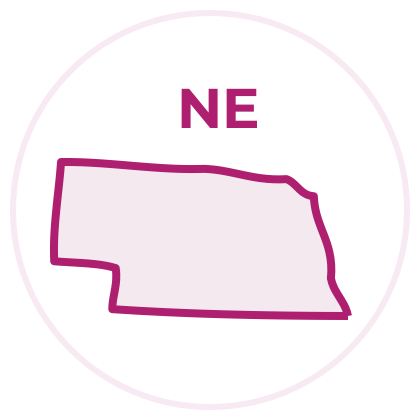Pre-Service Training
Prospective foster and adoptive families can choose between the 30-hour Trauma-Informed Partnering for Safety and Permanency (TIPS-MAPP) or Deciding Together (DT) trainings, available online or in person through various agencies. Families wishing to adopt a child must complete an additional 16 hours of adoption-related topics before finalization. If they intend to adopt a child with higher medical needs, they must take an additional four hours of training on how to meet the child’s needs.
Relative caregivers are encouraged complete a five-hour online foster parent training via the Department of Health and Human Services (DHHS) to become licensed as a relative foster home.
Families pursuing guardianship should complete one of the above trainings, depending on their relative status, and are also recommended to undergo training via the Office of Public Guardian. This is a three-hour training required by statute; however, the courts may choose to waive this requirement.
Services Offered Through the State’s Post-Permanency Support Program
The Nebraska DHHS contracts with Nebraska Children’s Home Society (NCHS) to provide post-permanency support to adoptive and guardianship families through the Families Forever program. Families can use the service until the child turns 21.
Services include:
The program served 180 families in fiscal year 2023.
For more information, visit https://nchs.org/families-forever/
Geographic Area Covered
The program is statewide and ensures staff are available for in-person or virtual visits as needed.
Eligible Population for the Overall Post-Permanency Program
Outreach and Engagement
DHHS provides Families Forever with a monthly list of families who have finalized adoptions or guardianships. The program attempts to contact each family at least three times by phone to share information about services. If phone contact is not possible, a packet of information is mailed to the family.
All families are added to a mailing list to receive weekly emails and quarterly digital newsletters. Families who have used services receive follow-up contact within 30 days, 60 days, and one year after discharge.
DHHS shares information on Families Forever services with managed care organizations and other professionals across the state who come into contact or work with adoptive and guardianship families to maximize the use of these services.
How the Post-Permanency Program Is Operated
Notes About Who Provides Which Service(s)
Nebraska Children’s Home Society provides all post-permanency services statewide.
Adoption/Guardianship Assistance/Subsidy Review and Changes
DHHS regional staff send an annual letter to adoptive families that includes a list of standardized questions, such as if the child still lives in the home, if the child’s needs have change, or if the family needs to make changes to the subsidy. Adoptive parents may request changes at the time of this annual letter or at any point there is a change in the child’s needs, family circumstances, or legal requirements. Requests must be made in writing to the Income Maintenance Foster Care Worker within 45 days of making the request, with supporting information.
Guardianship families may also request changes in the child’s subsidy depending on the type of guardianship they have in place. Guardianship families follow the same process as adoptive families by making a request in writing via the adoption Income Maintenance Foster Care Worker. Those with state-funded guardianship may request changes if one of two criteria is met, including if a child is 13 years of age or older or if the child has been in the home for a period of five years or more.
Tracking Adoption/Guardianship Discontinuity
Administration staff receive a monthly list of children and youth who have reentered custody, and this data is tracked and used to inform policies and programming. At times, staff may also become aware of children and youth reentering care via annual subsidy letters, children placed in group/psychiatric treatment facilities, or through the courts. When this occurs, these families are referred to Forever Families for additional services and supports.
Post-Permanency Program Spending (FY 2023)
Funding Sources for the Post-Permanency Program (FY 2023)
- State funds


